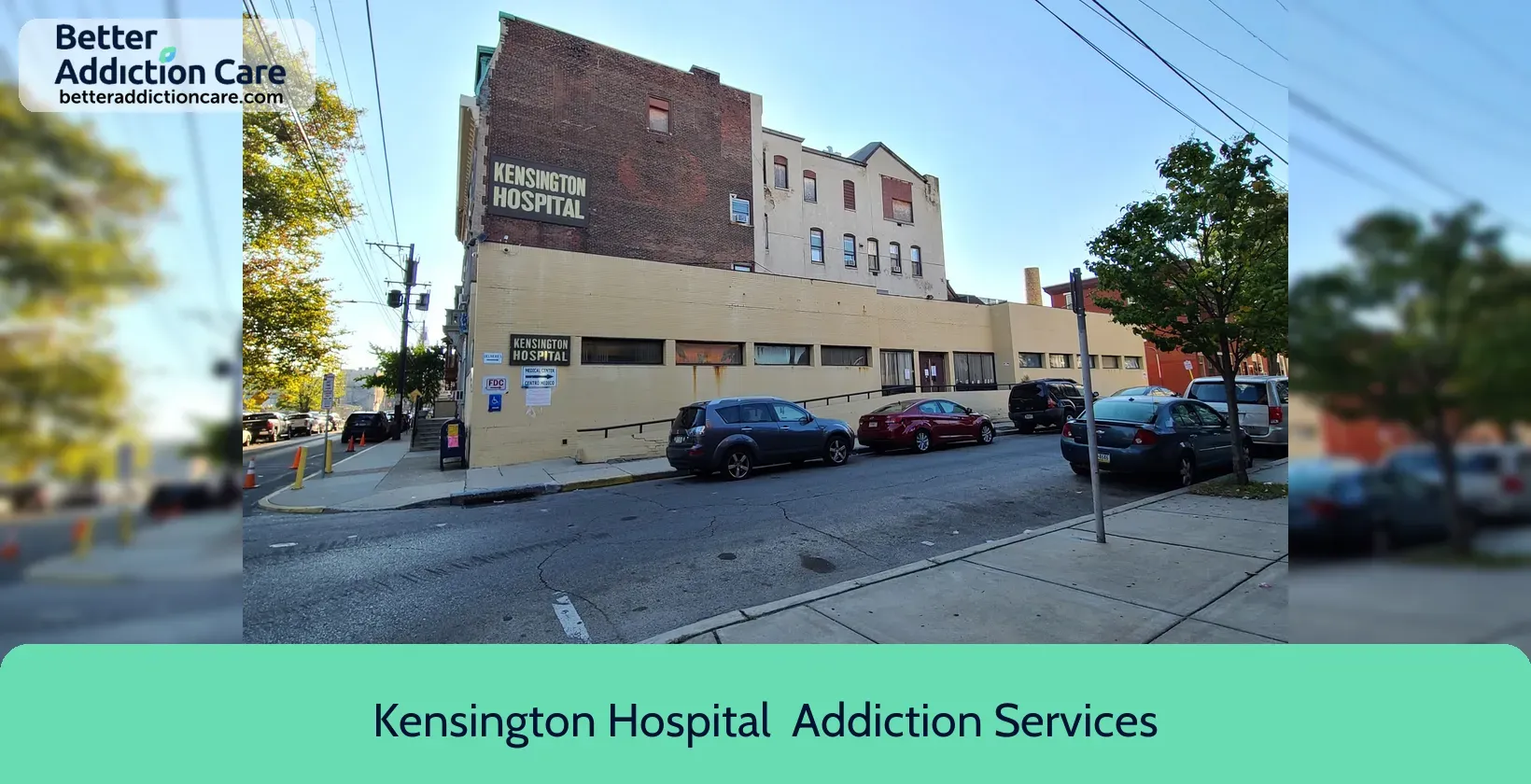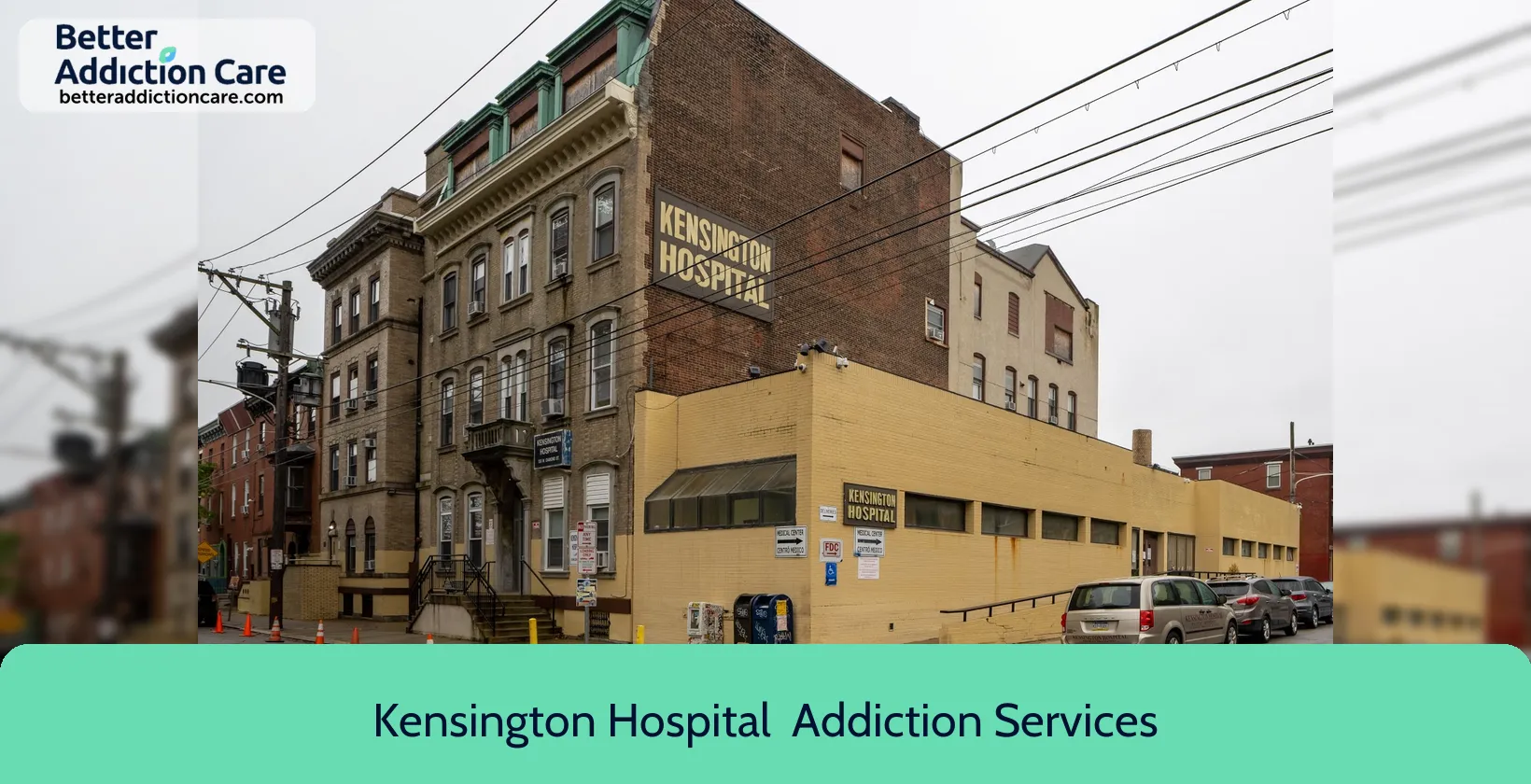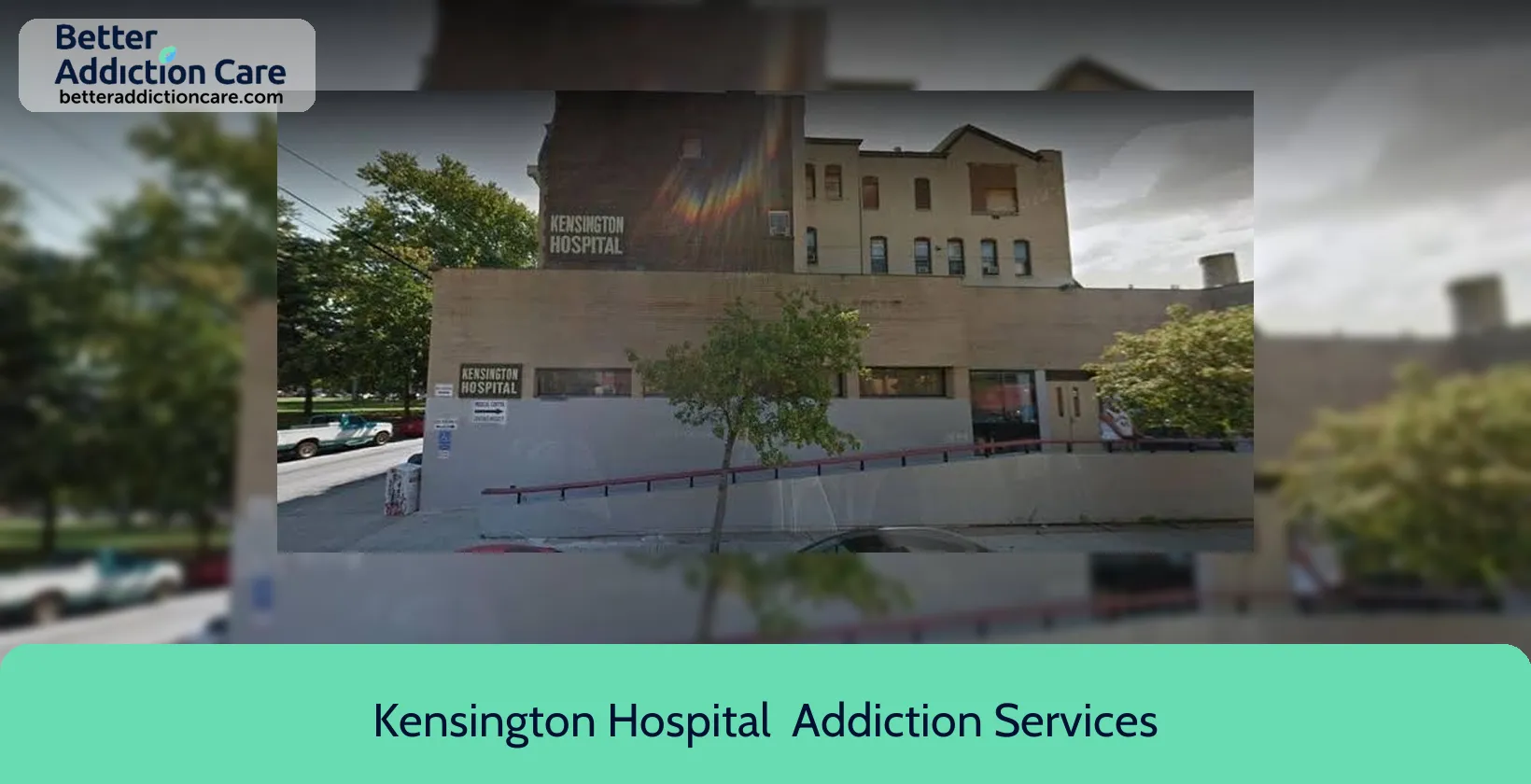Kensington Hospital - Addiction Services
Overview
Kensington Hospital - Addiction Services, an independent recovery center in Philadelphia, Pennsylvania signifying its commitment to maintaining high standards of care. The center offers comprehensive treatment plans tailored for adults struggling with alcohol and drug addiction. Key services include medically supervised detoxification, inpatient care, and medication-assisted treatment, all designed to support patients through each stage of their recovery journey. Additionally, Kensington Hospital provides individualized care plans and continuous support to ensure lasting sobriety and well-being.
At Kensington Hospital, treatment typically begins with a residential detoxification program, if necessary. This program ensures 24/7 supervision, with a dedicated case management team closely monitoring patients as they stabilize. For those experiencing withdrawal symptoms, methadone may be administered to alleviate discomfort. Throughout the inpatient stay, comprehensive medication management is provided to prevent relapse and support sustained recovery.
After completing detox, patients transition into residential care, where they participate in a variety of individual and group therapy sessions. This collaborative environment fosters peer support and shared recovery experiences. Additionally, the program includes harm reduction classes and provides practical tips on preventing relapse, equipping patients with the necessary tools for long-term recovery.
Upon completing the inpatient program, patients continue to receive medication management on an outpatient basis, ensuring ongoing support in their recovery journey. Comprehensive continuing care is available, including primary health services to address overall well-being. Additionally, Kensington Hospital features a mobile unit as part of its outreach program, providing essential services such as wound care to the community.
Kensington Hospital is accredited by The Joint Commission.
Kensington Hospital - Addiction Services at a Glance
Payment Options
- Cash or self-payment
- Medicaid
- Medicare
- State-financed health insurance plan other than Medicaid
- Self-pay options
Assessments
- Screening for tobacco use
- Comprehensive substance use assessment
- Outreach to persons in the community
- Screening for mental disorders
- Screening for substance use
Age Groups
- Young adults
- Adults
Ancillary Services
- Case management service
- Suicide prevention services
- Social skills development
Highlights About Kensington Hospital - Addiction Services
7.83/10
With an overall rating of 7.83/10, this facility has following balanced range of services. Alcohol Rehabilitation: 8.00/10, Drug Rehab and Detox: 9.08/10, Insurance and Payments: 6.67/10, Treatment Options: 7.58/10.-
Drug Rehab and Detox 9.08
-
Alcohol Rehabilitation 8.00
-
Treatment Options 7.58
-
Insurance and Payments 6.67
Accreditations
State department of health:

Government agencies issue State Licenses, granting rehabilitation organizations permission to operate their businesses legally within specific geographic regions. The licenses needed for legal operation are typically determined by the type of rehabilitation program offered by a facility and its physical location.
Hospital licensing authority:
The Hospital Licensing Authority is responsible for granting licenses to healthcare facilities, ensuring that they meet the standards and regulations set by the government. Accreditation is a process of evaluation and recognition by a third-party organization, confirming that the hospital meets specific quality and safety standards.
Commission on Accreditation of Rehabilitation Facilities (CARF):

CARF accreditation is a prestigious recognition granted to rehabilitation and human service organizations. It signifies that an organization meets high-quality standards, having undergone a rigorous evaluation process. CARF accreditation boosts an organization's credibility and ensures top-notch care for individuals with disabilities, injuries, or healthcare needs.
Drug Enforcement Agency (DEA):
DEA accreditation refers to the process by which a law enforcement agency is recognized by the Drug Enforcement Agency (DEA) as having met specific training, operational, and resource requirements necessary to participate in DEA-led drug enforcement efforts. This accreditation allows the agency to perform DEA-related tasks such as conducting investigations, executing federal search warrants, and participating in joint task forces.
SAMHSA certification for opioid treatment program (OTP):
Accreditation by the Substance Abuse and Mental Health Services Administration (SAMHSA) for Opioid Treatment Programs (OTPs) signifies that a program has met strict standards for providing high-quality care to individuals with opioid use disorders. It assures patients, families, and communities that the OTP follows evidence-based practices, employs qualified staff and maintains a safe and effective treatment environment. This accreditation reflects the program's commitment to addressing the opioid epidemic and promoting recovery.
The Joint Commission:

The Joint Commission's addiction and behavioral health accreditation signifies a facility's commitment to high-quality care. It involves rigorous evaluations and assessments of clinical practices, ensuring effective, evidence-based treatment. Accreditation showcases a dedication to continuous improvement and patient safety, instilling trust among patients, families, and healthcare professionals. It's a mark of excellence in addiction and behavioral health care.
Effective date: 11/10/2017
Registration: 6133
Treatment At Kensington Hospital - Addiction Services
Treatment Conditions
- Alcoholism
- Substance use treatment
- Opioid Treatement
Care Levels
- Hospital inpatient/24-hour hospital inpatient
- Short-term residential
- Residential detoxification
- Hospital inpatient detoxification
- Aftercare
Treatment Modalities
- Cognitive behavioral therapy
- Substance use disorder counseling
- Trauma-related counseling
- Smoking/vaping/tobacco cessation counseling
- Group counseling
Ancillary Services
Additional Services
- Pharmacotherapies administered during treatment
- Mentoring/peer support
- Breathalyzer or blood alcohol testing
Special Programs
- Clients who have experienced trauma
Get Help Now
Common Questions About Kensington Hospital - Addiction Services
Contact Information
Other Facilities in Philadelphia

7.46
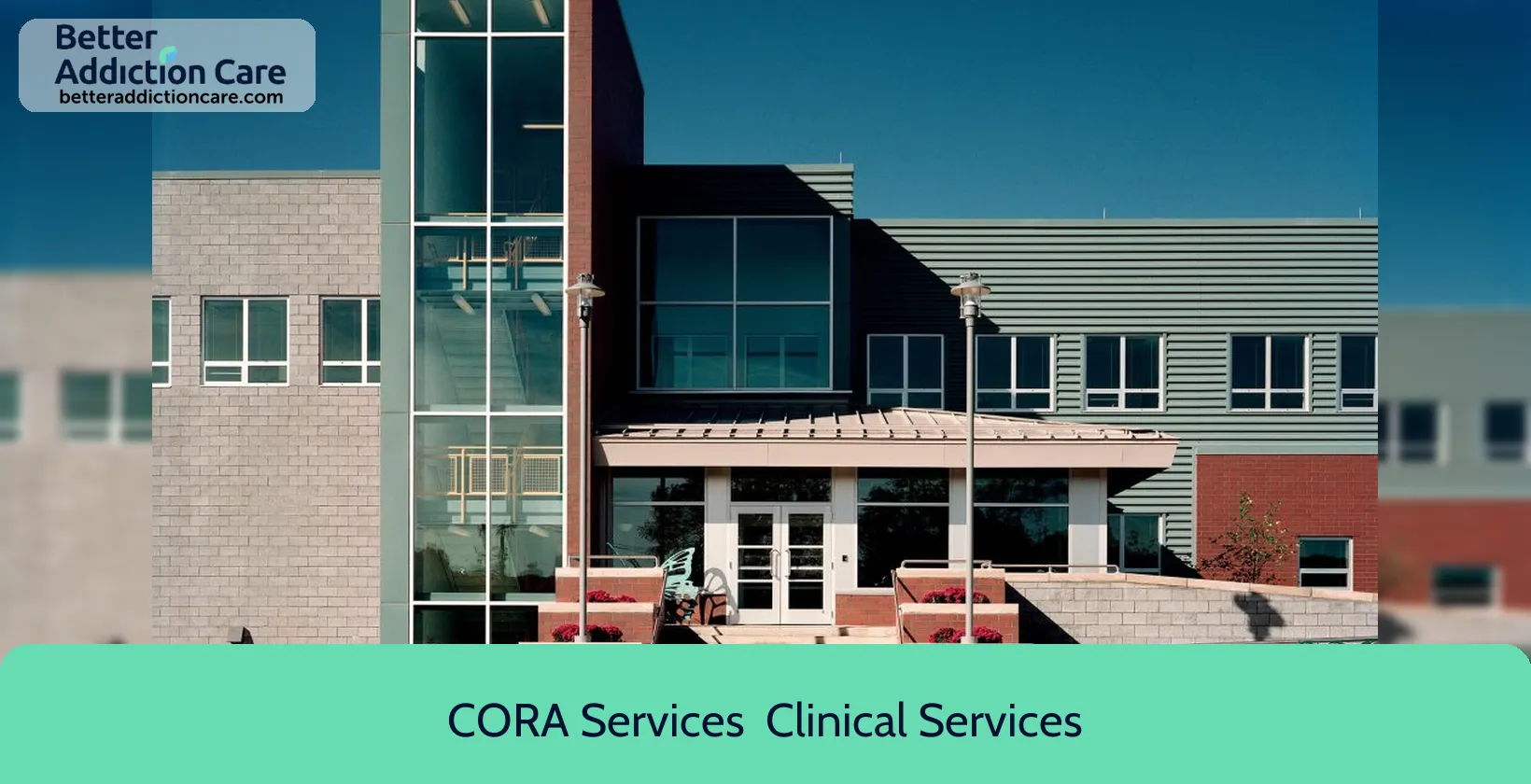
6.89
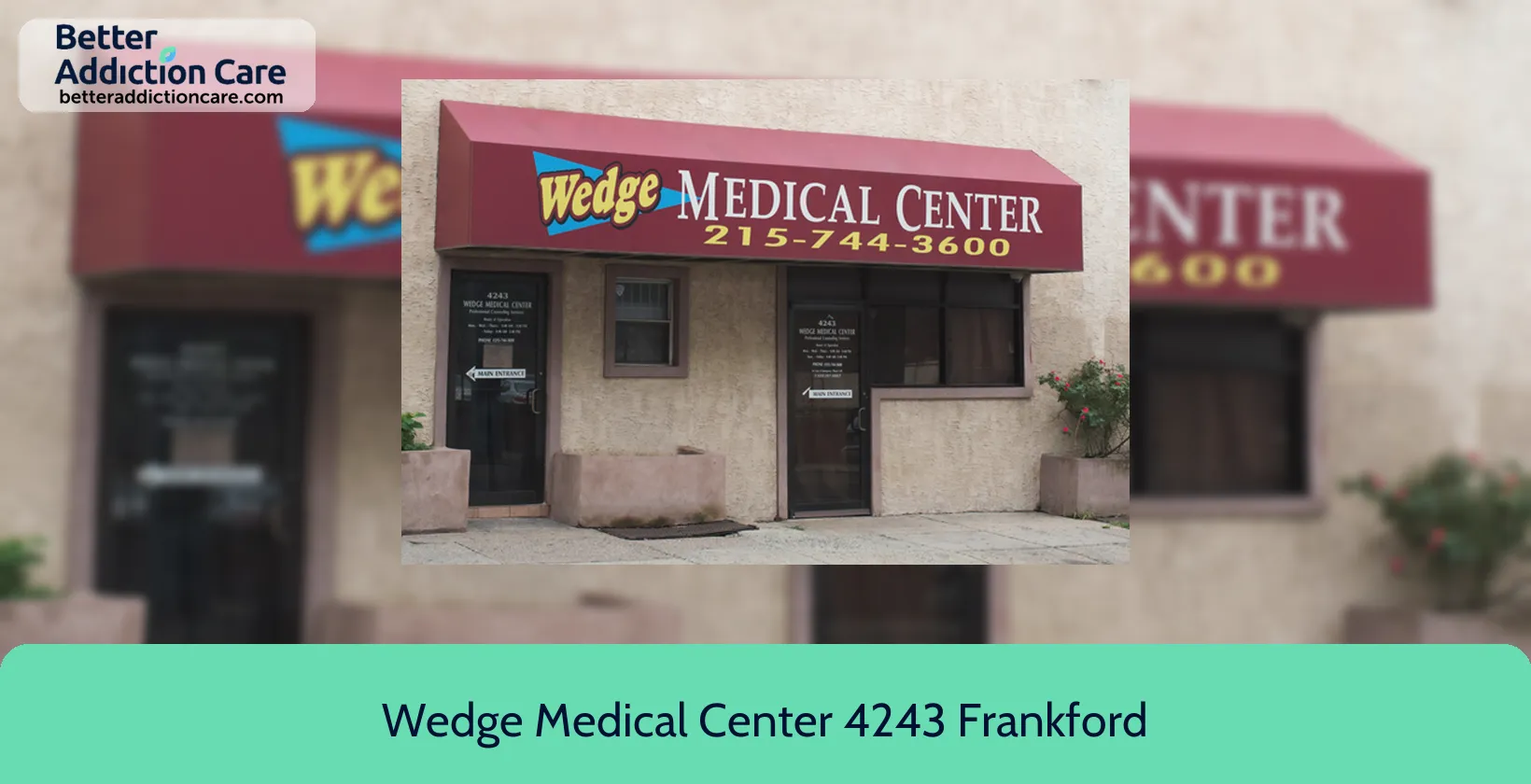
7.33

7.29
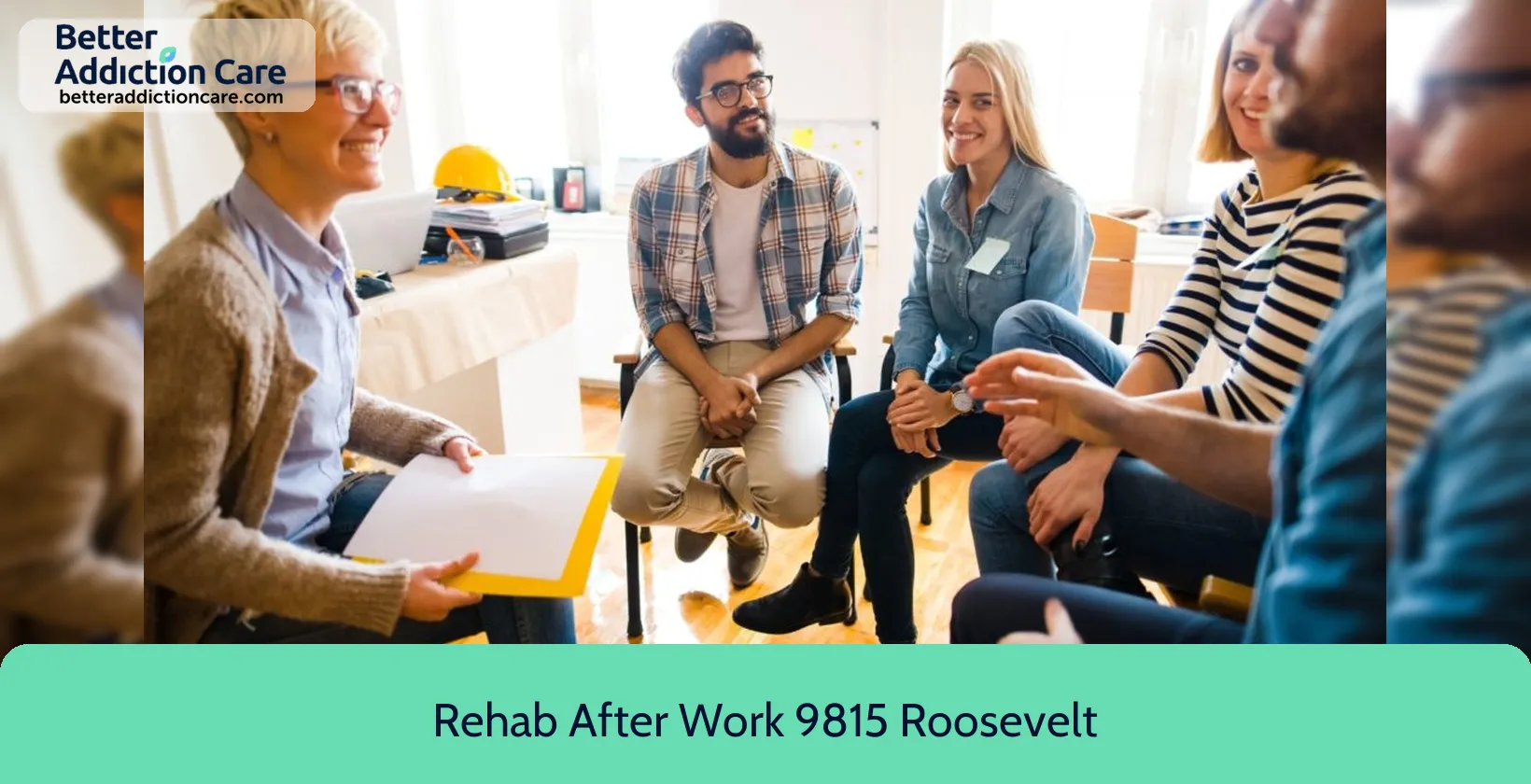
6.62
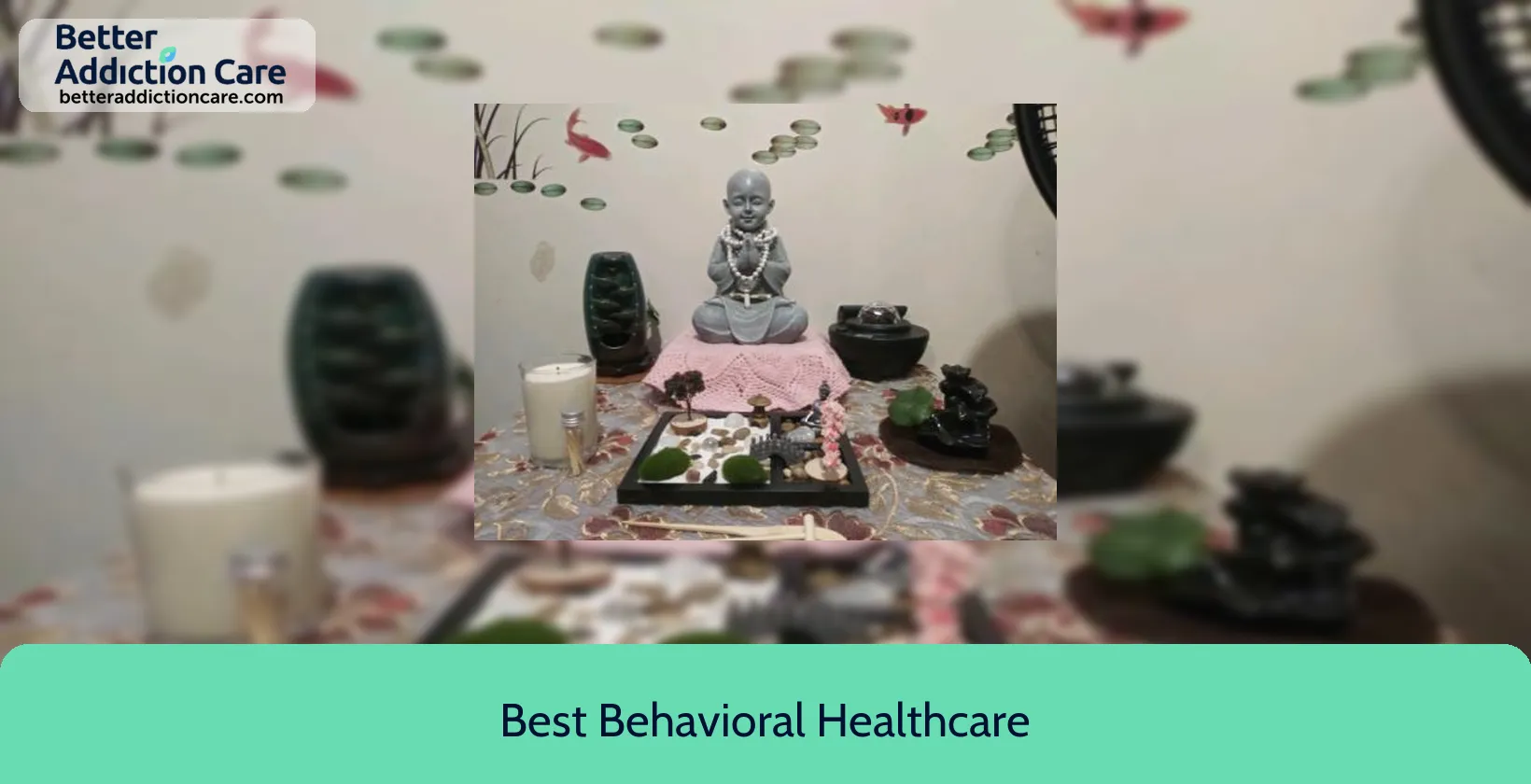
6.74

6.89
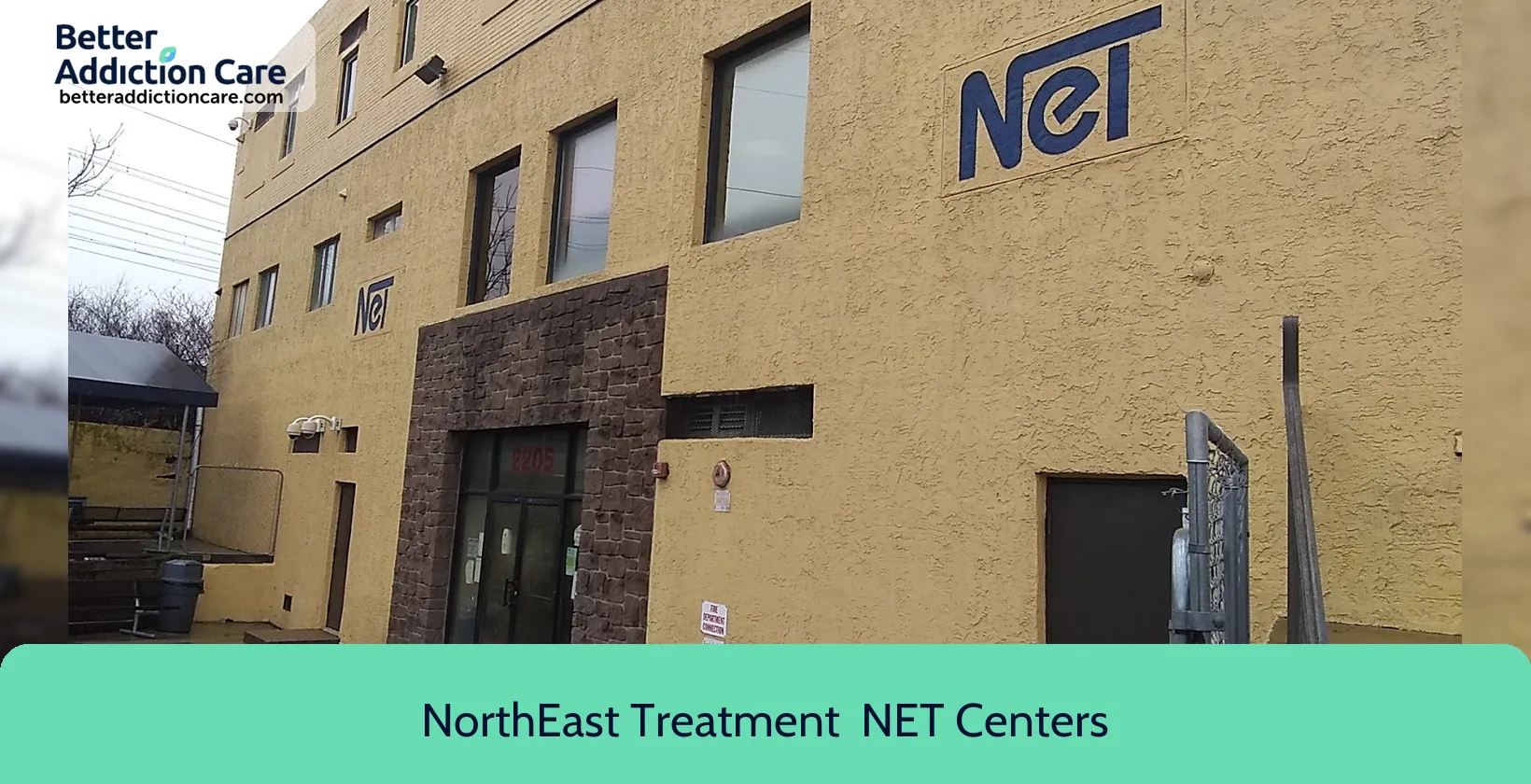
7.52
DISCLAIMER: The facility name, logo and brand are the property and registered trademarks of NorthEast Treatment - NET Centers - Wharton Residential Center, and are being used for identification and informational purposes only. Use of these names, logos and brands shall not imply endorsement. BetterAddictionCare.com is not affiliated with or sponsored by NorthEast Treatment - NET Centers - Wharton Residential Center.
